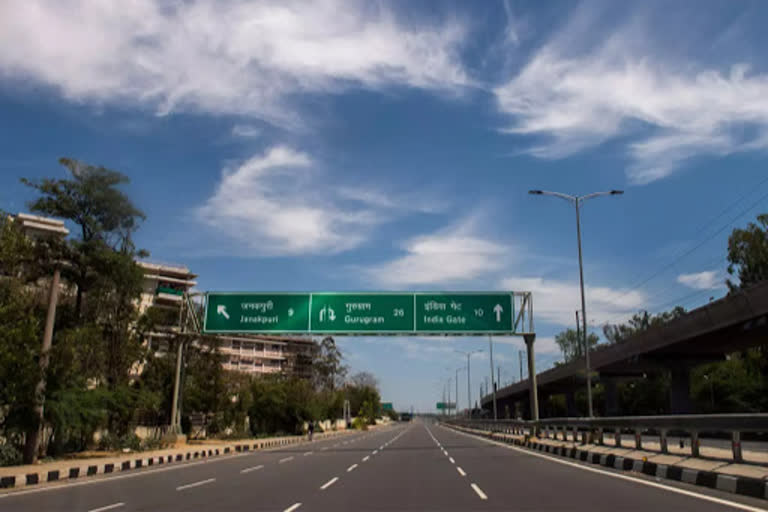New Delhi:A drastic fall in pollution level has been witnessed during the coronavirus induced nationwide lockdown, marking a significant improvement in air quality in highly populated cities including Delhi, Gurugram, Bangalore, Mumbai, Kolkata, Chennai, Patna, Indore and others, said a report released by Central Pollution Control Board (CPCB).
The analysis was being carried out to assess the impact of lockdown on the ambient air quality of major cities. A study was done in three stages on the air quality data of pre-lockdown (March 1 to 21), phase-I (March 25- April 19) and lockdown phase-II (April 20 -May 3).
A comparative analysis has also been done for the corresponding time-periods in 2019, to assess the quantum of improvement during the lockdown.
"In terms of Particulate Matter levels, while PM 2.5 reduced by 24 per cent during the pre-lockdown phase, it further reduced by almost 50 per cent during both lockdown phases as compared to levels observed during 2019. PM 10 reduced by a massive 60 per cent," stated the report while explaining the air quality of New Delhi.
Read:|Unlock 1.0: Delhi's air quality level gets 'severe'
In Delhi, significant reductions in PM 2.5, PM 10 and NO2 levels were observed in both the phases of the lockdown, as a result of a combination of reduced vehicles on roads, functioning of only essential commercial units and prevailing weather conditions.
Reduction in pollutant concentrations has also been witnessed in comparison to pre-lockdown levels in Delhi. 38 per cent and 33 per cent reduction in PM 2.5 and 37 per cent and 30 per cent reduction in PM 10 was observed during the lockdown phase-I and phase-II respectively, as compared to pre-lockdown periods.
The study also revealed that sources associated with vehicular emissions, domestic coal combustion, waste incineration and urban organic aerosols reduced sharply from the pre-lockdown phase into lockdown Phase-1 and were found to steadily rise back with increasing relaxations in the lockdown.
The report stated that during lockdown phase-1, wherein maximum restrictions were imposed, the contribution of vehicular emissions in Delhi got reduced to 5 per cent from 19 per cent. However, it again rose to 15 per cent in phase-3 of lockdown.
In Mumbai, a reduction of 68 per cent in SO2 levels, 56 per cent in NO2 levels and 20 per cent reduction and PM 10 levels were seen during Phase-1 of lockdown against 2019 levels. PM 2.5 levels increased in the first phase of lockdown by 5 per cent but decreased by 9 per cent in the second phase of lockdown.
Overall, 29 per cent reduction in PM 2.5 and 41 per cent reduction and PM 10 was observed during the first phase of lockdown, which further increased 247 per cent and 15 per cent respectively in phase 2 of lockdown, seemingly due to the restriction on construction activities, less road resuspension and to some extent curb on industrial activities.
Wherein, Kolkata witnessed 12 'Good' AQI (Air Quality Index) days during the 40-day lockdown period, rising from 4 'Good' AQI days seen during the same period in 2019.
Bengaluru had seen a 48 per cent reduction in PM 10 and 59 per cent in PM 2.5 during the second phase of lockdown. However, there was also an increase of 14 per cent, 2 per cent and 29 per cent in SO2 levels during pre-lockdown, lockdown phase1 and phase2 respectively.
"Although, significant improvement in air quality was observed during lockdown due to restricted anthropogenic activities such as air quality management strategies come with considerable economic costs. Irreversible emission reductions through sustainable process changes and long-term objectives is crucial for achieving good air quality levels," said CPCB in the report.
Read:|Air pollution reduces Indian's life expectancy by 5.2 years: Study
